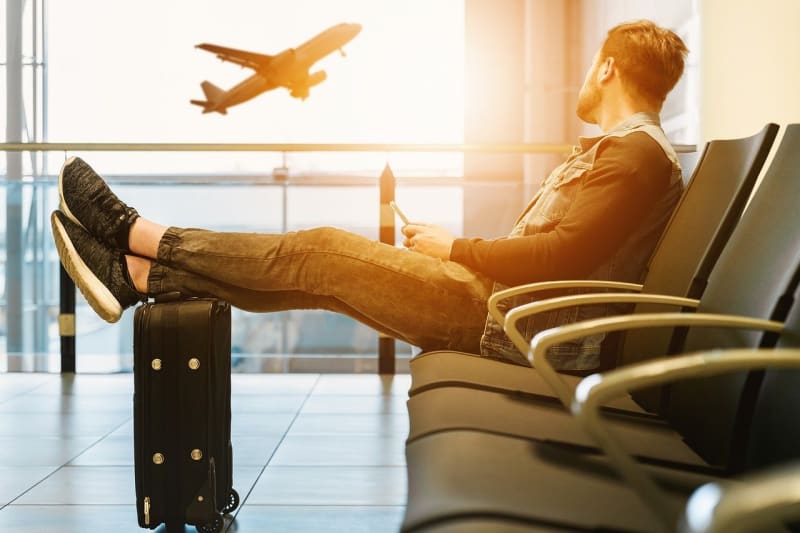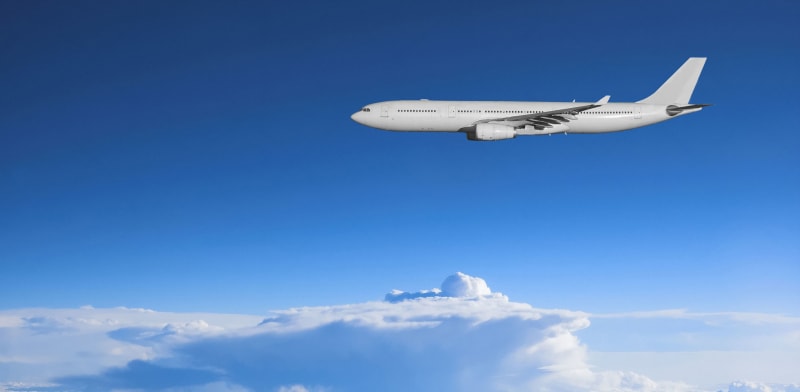Tips for long-haul travelers
Moving to Shanghai is going to be an exciting and life-changing experience, not only for what the city and China have to offer, but also for what all of Asia has to offer. Choosing to live on the other side of the world puts you on the doorstep of some of the world’s greatest vacation destinations – think weekend getaways to the beaches of Thailand or shopping trips to Hong Kong and Singapore all in your time zone.
While this may be true, moving to Shanghai will also mean annual trips home to see friends and family and dealing with the jet lag that comes with trans oceanic travel.
What is jet lag?
Jet lag is the fatigue caused by the disruption of sleeping patterns during long haul flights across multiple time zones. The body’s natural sleeping pattern is known as circadian rhythm or sleep/wake cycle and during normal periods of your life it operates as a 24-hour internal clock that controls when you feel awake and energized as well as when you feel sleepy. Typically, people feel most drowsy at 1-3pm in the afternoon and 2-4am at night.
Because most people have difficulty getting a restful sleep on an airplane (regardless of class), long-haul flights tend to cause sufficient disruption of circadian rhythms that people will feel drowsy and energized at times that do not correspond to the time zone they are in. This means that on arrival at your destination, you are likely to have a hard time sleeping at your normal bed time and conversely that you will feel tired and drowsy during the day time.
Despite claims to the contrary, there is no fixed cure for jet lag and it affects people of different ages, state of health and stress levels. Older, less healthy people usually take longer to recover and if you are suffering from high levels of stress, which also affect the quality of the sleep you normally get, it will also take you longer to recover.
Typically, jet lag is worse going from west to east. This is because flying in this direction your body will want to sleep when it's time to get up and you will be getting up at a time your body thinks is the middle of the night. This is not good news for those traveling from Shanghai to North America to visit on holiday as you they will feel the effects of jet lag harshly on your way home for vacation.
Studies have shown that it takes a day of recovery for every time zone you pass through in order to get back to 100% though the effects lessen significantly after the first two days both if you are traveling from west to east or east to west. Though if you are traveling eastward across nine time zones it may take up to two weeks to fully recover. Going the other direction should take about half the time.

For those traveling across multiple time zones it’s important to take steps to lessen the effects of jet lag so that precious time is not lost trying to recover and feel normal again. Here are some tips:
1. AVOID NIGHTTIME ARRIVALS IF POSSIBLE
Particularly for trans oceanic flights of more than 10 hours, arriving in the daytime helps your body adjust more quickly. Fortunately, airlines know this and most likely your flight will be scheduled appropriately in order to lessen jet lag. This makes for a long day but the body is shown to deal better with a long day than a short one.
2. RESIST THE URGE TO SLEEP WHEN YOU ARRIVE
Most long-haul flights from North America and Europe arrive late morning or early afternoon in Shanghai so the task is to try to stay awake as long as possible on your first day. Sleeping early is fine but waiting until its dark outside will significantly help your circadian rhythms adjust to your new time zone. Important note: try your very best to avoid all caffeine if you can. Caffeine takes about 6 hours to metabolize in the body and you don’t want to be staring at the ceiling at midnight. However, if you can’t resist then a cup of coffee on arrival should be fine.
3. LOOK AT LONG HAUL FLIGHTS LIKE PRO ATHLETES LOOK AT BIG GAMES
Both events are psychological and physical challenges and pro athletes know that getting solid nights sleep, eating right and trying to relax before the big game is key to performing at a high level. Not really rocket science as the opposite would be to try to perform tired, hungry and stressed out. The same principals apply to dealing effectively with jet lag. Similarly, sleeping pills and alcohol are well known to increase the negative effects of jet lag – think nasty hangovers.
4. GET LOOSE
Depending on your fitness level, one of the worst parts of long-haul flying is being stuck in your seat for extended periods of time. Though you will be entertained by the inflight entertainment systems, you will still be stuck in a generally small and poorly padded seat for longer than a workday. So if you would normally get up from your desk to stretch a bit every few hours in your office, then take the time to do so on your flight as it will improve the night’s sleep to come. Feeling stiff and restless will decrease the effectiveness of your first sleep at your destination and that will lengthen recovery times.
On both ends of your journey it is also very helpful to get a massage. If you are flying into an airport with a VIP lounge, they will often have massage and shower services and they are usually reasonably priced for a two or three hour stay so leaving a bit early and taking a mini spa trip before you board and one after will provide significant improvements in recovery time. For an extra one or two days at 100%, it may be worth the expense.





